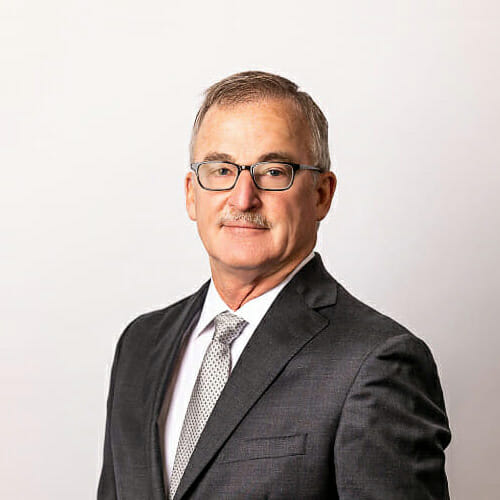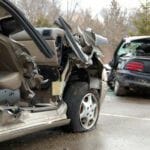In-Cab Truck Cameras: Making Our Roads Safer?
May 9, 2017 / Truck Accidents
You might not realize it, but trucking companies have begun installing in-cab truck cameras to provide evidence in case of crashes or other road mishaps. The technology arrives at a time when the Federal Motor Carrier Safety Administration (FMCSA) recorded an increase in crash deaths of 8 percent from 2014 to 2015. No one wants to see more deaths because of wrecks involving large trucks, so the FMCSA is doing what it can to reduce them.
While truck drivers have objected to cameras in their cabs, it’s important to note that many of these cameras are forward-facing, meaning they do not record the driver. Forward-facing cameras record what the driver sees. In the case of an accident, the camera can help establish a timeline of what went wrong. Andrew Schimelpfenig of Omnitracs Safety Center of Excellence, who calls the cameras a “reliable witness,” commented, “When something bad does happen, you want to be able to see what your driver saw.”
What the Cameras Do
The cameras record a few seconds of video before and after an event, as well as the event itself. Not all of the events are crashes—sometimes the cameras record things such as the driver dodging a large chair that fell off the back of a pickup, or managing to avoid rear-ending a car that cut them off. These events can all be captured by forward-facing cameras because they are triggered by actions such as hard braking, swerving, or rapid acceleration.
Driver-facing cameras can also record events. Here is where the controversy largely lies. One article has pointed out that 90 percent of truck drivers have said they will not work for a carrier that uses driver-facing cameras. Indeed, many carriers themselves believe that 80 percent of commercial truck accidents are not the trucker’s fault and can be reluctant to use driver-facing cameras.
What Truck Safety Experts Say
Despite the drivers’ and carriers’ opinions, a number of experts believe that driver-facing cameras are needed to record behaviors by the drivers in case of a crash. One reason is that the driver-facing cameras capture moments when truck drivers exhibit risky behaviors such as using their cellphone, running red lights, or even falling asleep. Jeff Schefchik, President of Paper Transport Inc., a Green Bay, Wisconsin, truck carrier, praises dual cameras, calling them “a very powerful training tool” that can be used to encourage drivers to improve.
Some carriers do believe that using both forward-facing and driver-facing cameras (known as dual cameras) will do the most to improve safety on the road. One company has a track record of proving this idea: NFI Industries, based in New Jersey, says that it has reduced its crash rates by 50 percent since dual cameras were installed in all of its truck cabs. Craig Bollinger, Senior Vice President of Risk Management at the company, has claimed that its insurance rates have gone down by as much as 30 percent. Other carriers have stated that accident claims are settled much more quickly when in-cab cameras are in use.
While we understand that no one enjoys being recorded, the upside has been put succinctly by driver Kurt Kipling of Ishpeming, Michigan, who has been trucking for 26 years. Initially, he and his fellow “old school” truck drivers were unhappy about the in-cab cameras. His opinion was less than positive until an incident that occurred during August 2016, when another driver cut him off, hitting the left front fender of his truck. The camera recorded every moment of the crash, demonstrating that Kipling had the right of way. The trucker’s final word on the subject about his in-cab camera: “It could save your butt.”
If these new cameras save lives as well as make establishing fault in accidents easier, they may well be worth any inconvenience.
Let us put our resources to work for you.
We at Stephenson Rife know that truck accident cases can mean complex legal claims. Such claims require thorough investigation and demand aggressive litigation to secure the best possible outcome for the plaintiff. While monetary compensation can never undo the damage done as the result of a truck accident, a financial recovery can ease the financial burdens caused by overwhelming medical bills, loss of income, and disability.
If you or a loved one has been involved in an accident with a truck, we suggest you talk with Indianapolis truck accident lawyer Mike Stephenson. With more than three decades of experience, substantial financial resources to commit to your case, and a commitment to the highest standards of client care, you can count on Mike. Contact him today by calling 1-317-825-5200 for a free consultation, or use our online contact form.

 Mike Stephenson has 40 years of experience and is a trusted advisor to many individuals and companies. His current practice is dominated by civil litigation in state and federal courts. He focuses much of his time on handling catastrophic injuries caused by all types of accidents, including motor vehicle, trucking, workplace injuries, product liability, and fire, just to name a few. He also works extensively in construction accidents. [
Mike Stephenson has 40 years of experience and is a trusted advisor to many individuals and companies. His current practice is dominated by civil litigation in state and federal courts. He focuses much of his time on handling catastrophic injuries caused by all types of accidents, including motor vehicle, trucking, workplace injuries, product liability, and fire, just to name a few. He also works extensively in construction accidents. [ 